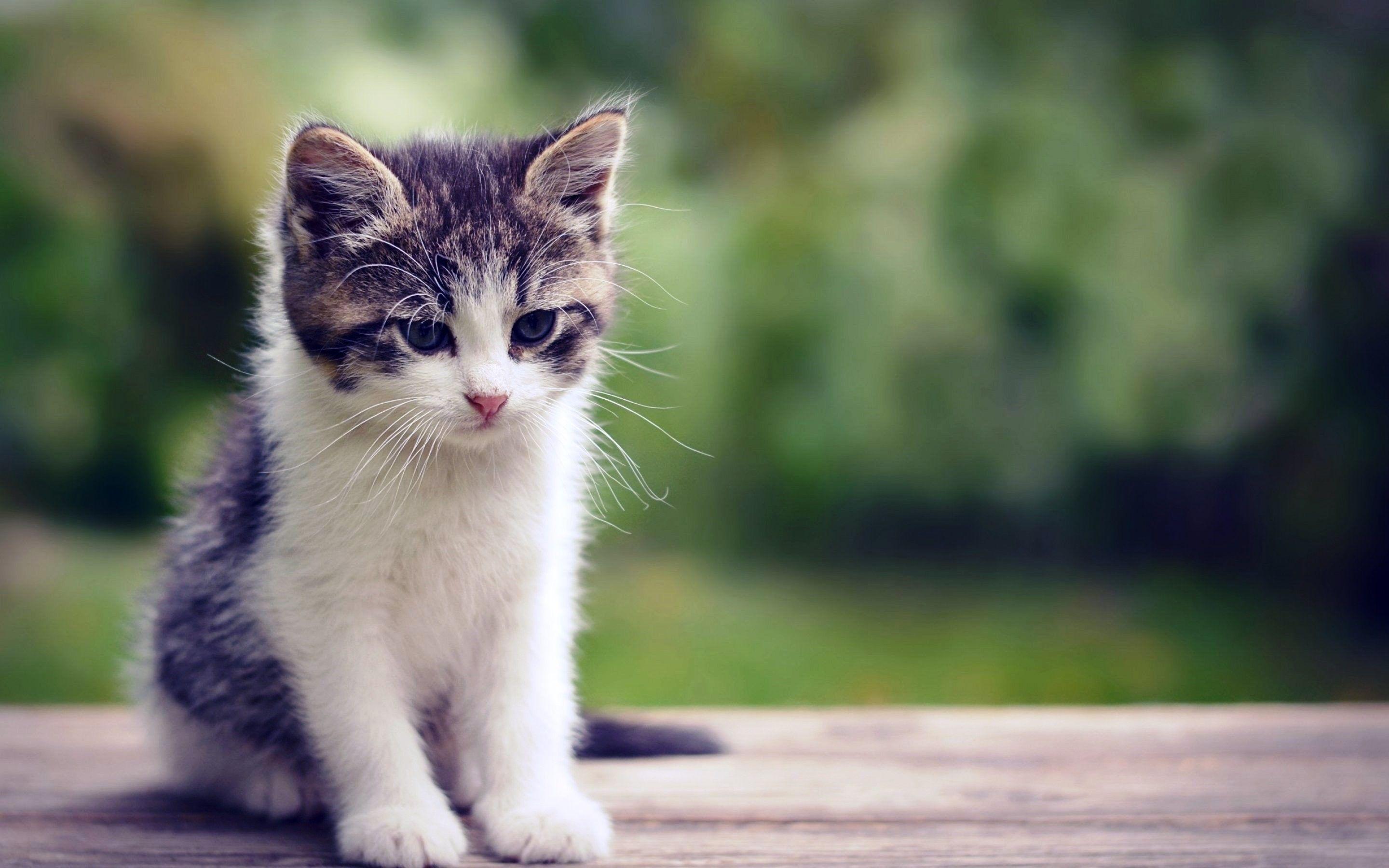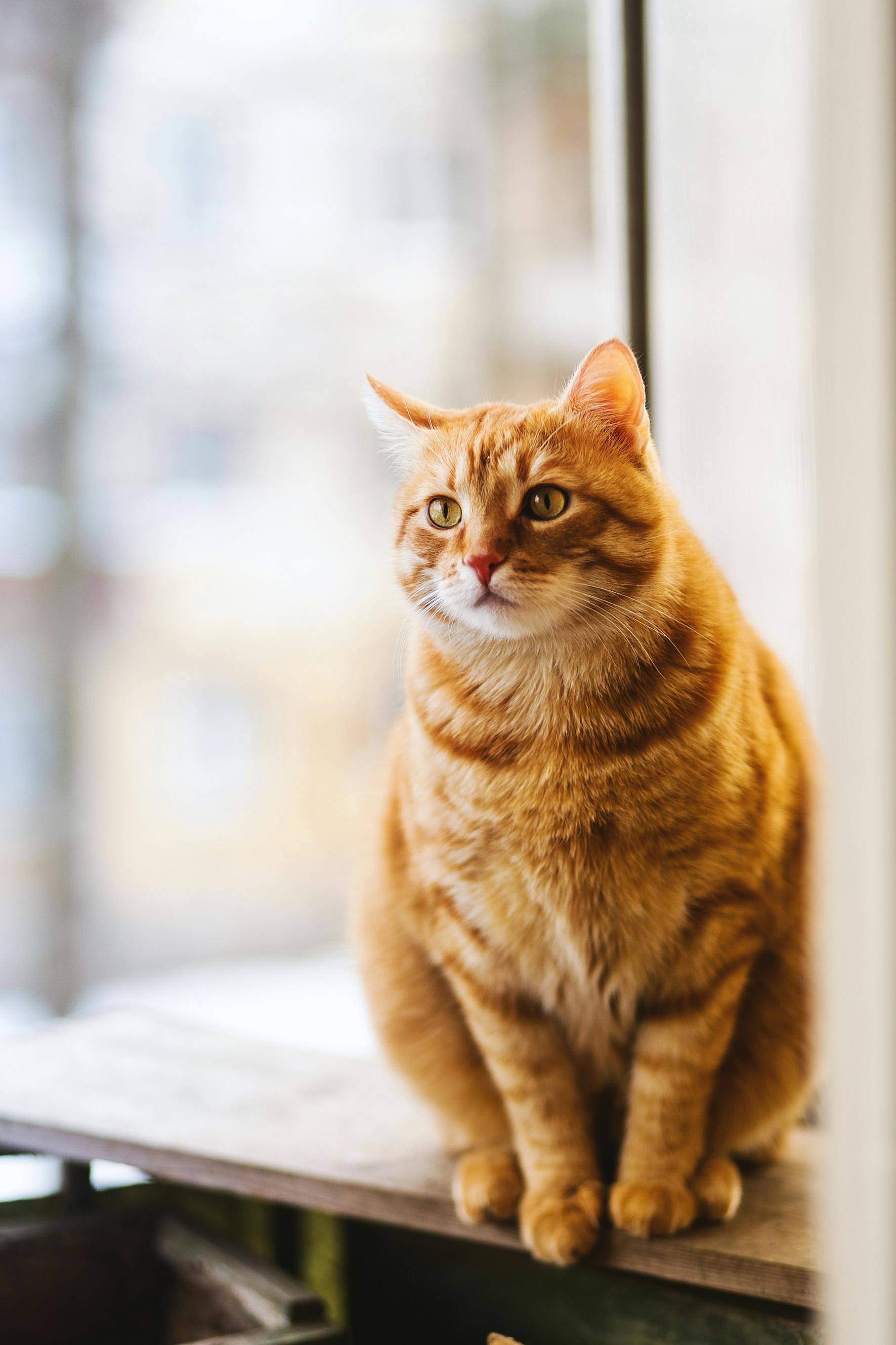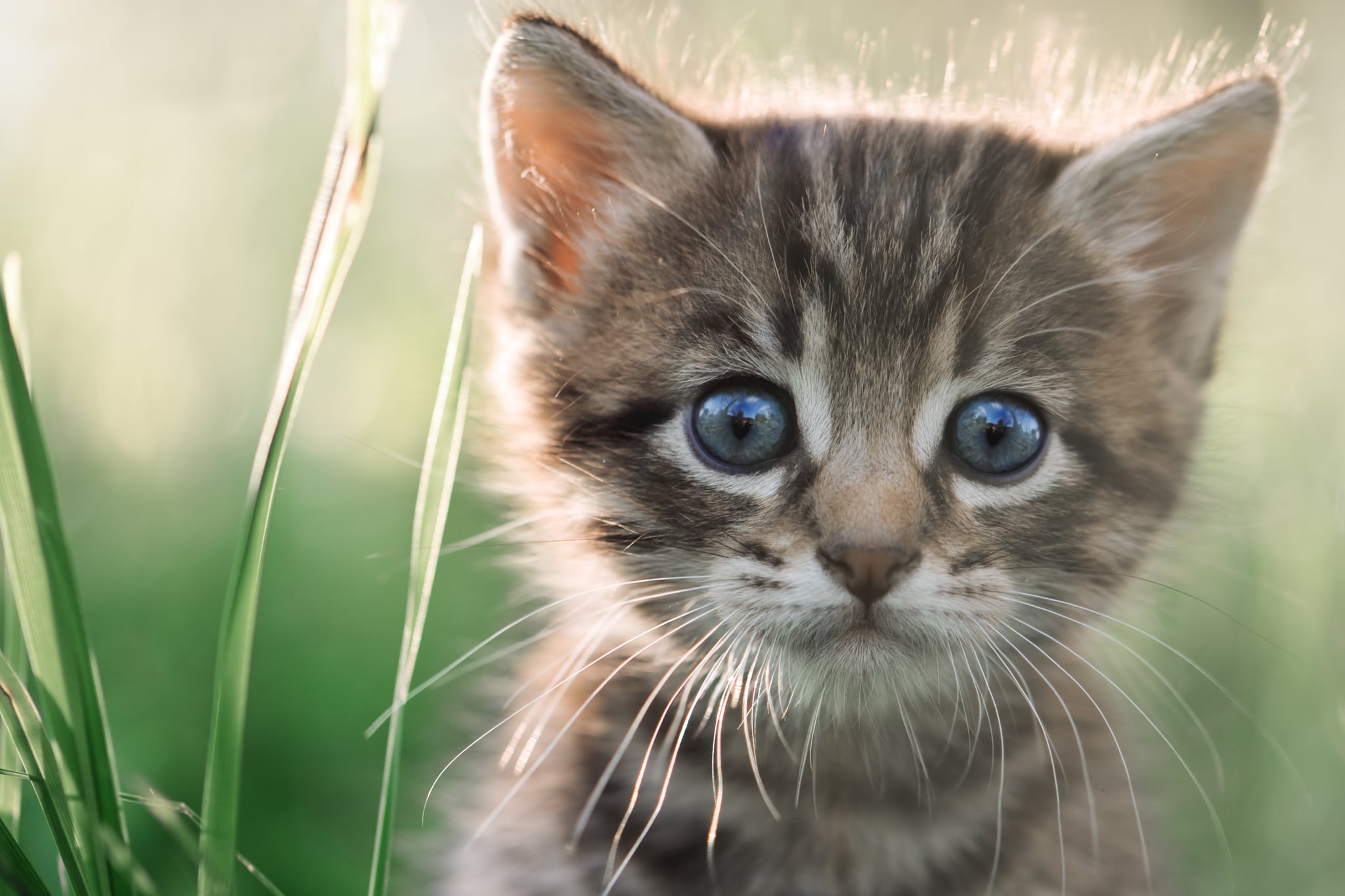Cat Eating Lots But Losing Weight - A Pet Parent's Guide
It can be quite a puzzle, can't it, when your furry companion seems to be eating with gusto, yet their body shape is telling a different story? Many cat guardians notice their beloved pet is consuming a good amount of food, perhaps even more than usual, but despite this hearty appetite, they appear to be shedding pounds. This situation, you know, often brings a sense of worry and confusion for anyone who cares deeply for their feline friend.
Seeing a cat eating lots but losing weight is, in some respects, a sign that something might be a little out of balance within their system. It goes against what we typically expect: more food should mean more weight, right? When this basic rule doesn't hold true, it's a clear signal that we need to pay closer attention to what's happening with our four-legged family member. It’s a very common concern that many cat owners face.
This guide aims to shed some light on this rather perplexing issue, exploring some of the common reasons behind a cat eating lots but losing weight. We'll talk about what might be going on inside your pet, when it's really time to seek advice from a veterinary professional, and how you can offer support at home. Our goal is to give you a better grasp of this situation, helping you feel more prepared and less worried, actually.
- Perez Maria
- Jimmy Kimmel And Brad Pitt
- Holly Siriusxm
- 30 Day Pill Container
- Haul Out The Holly 3 Release Date
Table of Contents
- Why is My Cat Eating Lots But Losing Weight?
- What Health Issues Cause a Cat to Eat Lots But Lose Weight?
- When Should I See the Vet About My Cat Eating Lots But Losing Weight?
- How Can I Help My Cat Eating Lots But Losing Weight at Home?
Why is My Cat Eating Lots But Losing Weight?
It's a question that pops into the minds of many cat parents, seeing their feline friend gobble down meals with gusto, yet noticing their ribs become more apparent or their overall body mass diminishing. This situation, you know, can be quite puzzling. Typically, when an animal consumes more nourishment, we anticipate a corresponding increase in their body mass. When this doesn't happen, it suggests that the calories taken in are not being used or stored as expected, or perhaps are being burned through at an unusually rapid rate. There are, as a matter of fact, several common explanations for this peculiar imbalance.
One primary reason for a cat eating lots but losing weight might be an underlying issue that causes their body to process food differently. Sometimes, their digestive system might not be pulling out all the good stuff from the food, meaning they aren't getting the full benefit of what they eat. Other times, their body could be working overtime, burning through energy much faster than it should. It's almost like they have a super-fast engine, constantly running, which uses up all the fuel without building up reserves. This can be a bit concerning, naturally, and points to a need for closer examination.
The Metabolism Puzzle for a Cat Eating Lots But Losing Weight
The speed at which a cat's body uses energy, its metabolism, plays a big part in its overall body condition. When a cat is eating lots but losing weight, it could be that their metabolic rate has gone into overdrive. This means their body is burning through calories at an incredibly fast pace, so fast that even a large intake of food isn't enough to keep up with the energy demands. Think of it like a car with a very thirsty engine; it needs a lot of fuel just to keep moving, and it never really builds up a reserve. This heightened energy usage can be a sign of certain health conditions, basically, that cause the body to work harder than it should.
- Charles Simonyi Yacht
- Ella Langley Relationship With Riley Green
- Foot Cheese Grater
- Hotel Paris 7
- Elvis And Ginger
One of the most frequent culprits behind a sped-up metabolism in older cats is a condition called hyperthyroidism. This happens when the thyroid gland, a small but powerful organ in the neck, produces too much of its special hormones. These hormones control how fast the body runs, and when there's an excess, everything speeds up. A cat with this condition will often have a ravenous hunger, wanting to eat all the time, but will still appear thin or even waste away. It's a bit of a paradox, seeing them eat so much yet still lose body mass. This is a very common reason for a cat eating lots but losing weight.
Could It Be a Worm Problem for a Cat Eating Lots But Losing Weight?
Sometimes, the reason a cat is eating lots but losing weight isn't about their body's internal workings, but rather about uninvited guests living inside them. Internal parasites, commonly known as worms, can steal the nourishment that your cat is trying to absorb from their meals. These tiny creatures reside in the digestive system and essentially compete with your cat for the vital nutrients from the food they consume. So, even if your cat is eating a good amount, a significant portion of those calories and vitamins might be going to feed the worms instead of your pet. This can be a really common issue, especially for cats who spend time outdoors or haven't been regularly dewormed.
Different kinds of worms, such as roundworms or tapeworms, can cause this problem. A cat eating lots but losing weight due to parasites might also show other signs, like a dull coat, a pot-bellied look (especially in kittens), or even vomiting and diarrhea. It's important to remember that these parasites are not always visible in a cat's stool, so you might not even know they're there without a proper check. If you suspect this is the case, or if your cat hasn't had recent parasite control, it's definitely something to consider. This is a fairly straightforward problem to address once it's identified, thankfully.
What Health Issues Cause a Cat to Eat Lots But Lose Weight?
Beyond a fast metabolism or sneaky parasites, there are several other significant health conditions that can lead to a cat eating lots but losing weight. These conditions often interfere with the body's ability to process food correctly, absorb nutrients, or regulate energy use. It's a complex system, and when one part isn't quite right, it can have a ripple effect on the cat's overall health and body weight. Identifying these issues often requires a vet's keen eye and some specific tests, since the symptoms can sometimes overlap. Essentially, the body isn't getting what it needs, even with a full food bowl.
For instance, problems with the digestive system itself, like inflammatory bowel disease (IBD), can prevent the proper uptake of nutrients. Or, issues with organs like the pancreas, which helps with digestion and blood sugar control, can also play a role. These conditions mean that even if the food goes in, the good parts don't necessarily make it to where they need to go in the body. This makes a cat eating lots but losing weight a clear indicator that something deeper might be going on, and it's worth exploring all possibilities with a health professional.
Thyroid Troubles and a Cat Eating Lots But Losing Weight
As mentioned earlier, an overactive thyroid gland, or hyperthyroidism, is a very common reason for a cat eating lots but losing weight, especially in older felines. This small gland, located in the neck, produces hormones that regulate nearly every process in the body, including metabolism. When it goes into overdrive, these hormones flood the system, causing the cat's internal engine to run at an incredibly high speed. This means they burn through calories and energy at an accelerated rate, far beyond what even a large amount of food can provide. So, you'll see a cat with a huge hunger, often crying for food, yet they'll become quite thin. It's a pretty clear sign, actually.
Other signs of thyroid trouble, beyond a cat eating lots but losing weight, can include increased thirst and urination, restlessness, a poor coat appearance, and sometimes even vomiting or diarrhea. They might seem more vocal or agitated than usual. Diagnosis usually involves a simple blood test to measure the levels of thyroid hormones. Once identified, this condition is often manageable with medication, special food, or other treatments, helping your cat regain a healthier body weight and feel much better. It's important to get it checked out, you know, as soon as you notice these changes.
Diabetes and Your Cat Eating Lots But Losing Weight
Another significant health concern that can cause a cat eating lots but losing weight is diabetes mellitus. This condition happens when the body either doesn't make enough insulin or can't use the insulin it produces effectively. Insulin is a hormone that helps sugar (glucose) from food get into the body's cells to be used for energy. Without proper insulin function, the sugar stays in the bloodstream and isn't absorbed by the cells, meaning the body's cells are essentially starving for energy, even though there's plenty of sugar in the blood. So, the cat's body tries to compensate by breaking down fat and muscle for energy, leading to weight loss. It's a pretty serious condition, basically.
A cat with diabetes will often show a greatly increased appetite because their cells are crying out for energy, making them feel constantly hungry. They'll also drink a lot more water and urinate more frequently, as the body tries to flush out the excess sugar. If you notice your cat eating lots but losing weight, along with these other signs, it's really important to get them to the vet for a check-up. Diagnosis involves blood and urine tests. While it sounds scary, feline diabetes can often be managed with diet changes and insulin injections, helping your cat live a long and comfortable life. This is a situation where early detection is very helpful, obviously.
When Should I See the Vet About My Cat Eating Lots But Losing Weight?
If you notice your cat eating lots but losing weight, it's generally a good idea to schedule a visit with your veterinarian sooner rather than later. While some causes might be relatively minor, many of the underlying reasons are serious health conditions that benefit greatly from early detection and treatment. Waiting too long can allow a condition to progress, potentially making it harder to manage or causing more discomfort for your beloved pet. It's almost always better to be safe than sorry when it comes to a sudden or unexplained change in your cat's body condition. This is a situation where a professional opinion is truly valuable.
Don't just watch and wait if your cat is eating lots but losing weight. Even if your cat seems otherwise normal, without other obvious symptoms, the weight loss itself is a significant indicator that something is amiss. A vet can perform a thorough physical examination, ask you detailed questions about your cat's habits and history, and recommend specific diagnostic tests. These tests might include blood work to check organ function and hormone levels, a urine test, or a stool sample to look for parasites. This comprehensive approach helps pinpoint the exact cause, allowing for the right course of action. You know, it's the best way to get answers.
How Can I Help My Cat Eating Lots But Losing Weight at Home?
While a vet visit is absolutely crucial when your cat is eating lots but losing weight, there are some things you can do at home to support your feline friend once you've consulted with a professional. The most important step is to follow your veterinarian's advice precisely, whether it involves medication, a special diet, or other care instructions. Your vet will provide a tailored plan based on the specific diagnosis. However, beyond that, there are general supportive measures you can take to ensure your cat feels comfortable and has every opportunity to thrive. This can be a bit challenging, but it's worth the effort.
One key aspect is making sure your cat has easy access to their food and water, especially if they are feeling unwell or weak. Consider placing food bowls in quiet, accessible areas where they feel safe and undisturbed. Offering multiple small meals throughout the day instead of one or two large ones can sometimes help, as it might be easier for them to digest and absorb nutrients. Providing a calm and predictable home environment can also reduce stress, which can indirectly affect appetite and digestion. It's about creating the best possible conditions for recovery and well-being, really.
Dietary Adjustments for a Cat Eating Lots But Losing Weight
When your cat is eating lots but losing weight, and after a vet has given a diagnosis, dietary adjustments often play a central role in their recovery and ongoing management. Your veterinarian might recommend a specific therapeutic diet designed to address the underlying condition, such as a prescription food for kidney disease, diabetes, or hyperthyroidism. These diets are carefully formulated to provide the right balance of nutrients while supporting the cat's specific health needs. Sticking to these specialized foods is very important, as they are a key part of the treatment plan. You know, it's not just about any food.
In cases where the vet confirms no specific disease requiring a prescription diet, they might suggest a high-calorie, highly digestible food to help your cat gain back some lost body mass. This type of food provides more energy in smaller portions, making it easier for a cat with a poor appetite or a fast metabolism to consume enough calories. Sometimes, simply switching to a more palatable wet food can encourage them to eat more, especially if they've been picky. Always introduce new foods gradually to avoid upsetting their stomach. The goal is to maximize nutrient intake and help them regain a healthy weight, obviously, in a way that is gentle on their system.

Baby Cats Wallpapers - Top Free Baby Cats Backgrounds - WallpaperAccess

1500+ Adorable Cat Pictures · Pexels · Free Stock Photos

Interesting Facts About Cats | POPSUGAR Pets